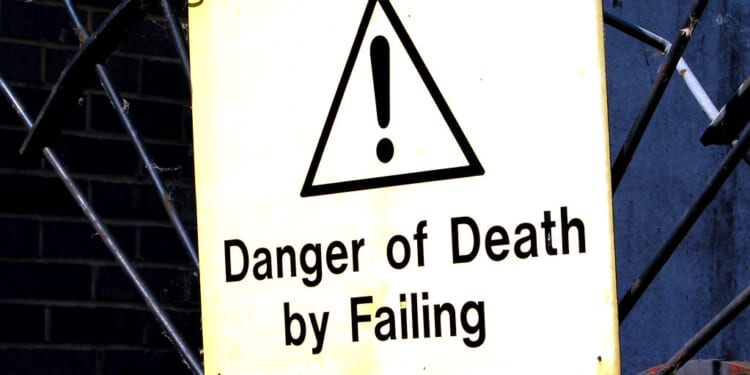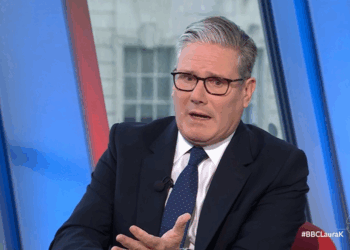Rebecca Paul is former councillor and currently the Conservative MP for Reigate.
The assisted suicide Bill has now completed its Second Reading in the House of Lords, where it will soon enter Committee stage, the part of a Bill’s passage where it enjoys its most detailed scrutiny. If ever a Bill required meticulous attention, it is one affecting matters of life and death.
I was a member of the Committee tasked with line-by-line scrutiny of the Bill in the House of Commons. Although Committee stage in the Lords will look different – comprising a ‘Committee of the whole House’ rather than a select few MPs – the essential task of reviewing each clause in turn will be the same. Peers have also, very sensibly, agreed to establish a Select Committee to hear oral evidence from relevant bodies ahead of their deliberations, similar to the oral evidence sessions that opened Committee stage in the Commons.
As peers begin to immerse themselves in the details of this Bill, it may be useful for me to share my experience of the equivalent stage in the Commons. The Commons Committee met over 29 sittings across 15 days, comprising 84 hours of scrutiny. Although this may sound like a lot, it really wasn’t in light of the far-reaching consequences of the Bill. Much of the process was rushed with insufficient time for preparation, while key institutions were not invited to give evidence at the start and their views often later dismissed when not supportive. The House of Lords’ role as a revising chamber means it would be appropriate for it to devote more time to Committee than the Commons and to address the many amendments MPs had insufficient time to consider.
Three facets of my experience on the Bill Committee are worth emphasising. First, supporters of the Bill deliberately chose to reject explicit protections for vulnerable groups. This is significant since campaigners behind the Bill portray it as necessary because of exceptionally rare cases of people suffering greatly at the end of life. Despite evidence from jurisdictions where assisted suicide has been accessed by large numbers who do not fit this category, they downplay warnings that the Bill could put others at risk.
If the architects of the Bill really sought a narrow Bill for exceptional cases, one would assume they would do everything possible to ensure other people could not slip through the cracks via poor drafting. And yet, I witnessed the very opposite at Committee. MPs concerned about the Bill tabled numerous amendments to ensure explicit protections would be included on the face of the Bill for individuals who might be vulnerable to external coercion or ‘self-coercion’. It was staggering to see amendment after amendment along these lines discarded.
The list of groups for whom explicit protections were rejected included people with eating disorders, Down’s syndrome, learning difficulties, disabilities, diabetes or autism, victims of domestic abuse, individuals who have a history of depression or suicidal ideation, those who may feel “a duty to die” out of feeling a burden to loved ones, homeless people and prisoners. The Bill sponsor even refused to back an amendment that would have prohibited doctors from raising assisted suicide with children under 18, although this was later addressed by the whole House at Report stage. Make no mistake – these were conscious choices, and demonstrated a preference for a broad Bill with wide access over a narrow Bill with strict safeguards.
Secondly, Committee stage exposed a preference among Bill supporters for a loose Bill over a tightly drafted one. Time and again, key details were left unresolved in the Bill, with far too many ‘Henry VIII powers’ and far too much left to ministers to determine later at their discretion, meaning MPs were voting blindly at Third Reading, without knowing exactly how the Bill would be implemented. The suspicion was given that leaving inconvenient or complex matters to ministers to determine later may have been preferable to clarifying issues that might have prompted concerns.
The result is we still do not know how an assisted suicide service would be implemented (via the NHS or privately by profit-making companies), what drugs would be used to end lives (an important question given complications have occurred elsewhere) or what doctors ought to do if the drugs fail. Surely legislation dealing with such sensitive matters requires greater, not less, precision within the Bill? Peers should not vote for something if it means giving a blank cheque to future secretaries of state on fundamental issues.
Finally, my experience on the Bill Committee made it abundantly clear that the myriad flaws with the Bill, identified at Second Reading by countless peers, are there by choice. It was remarkable to watch cheerleaders for the Bill resisting almost all attempts to improve it.
As the above points demonstrate, the weaknesses with the Bill inherited by peers are not an unfortunate accident or the inevitable fruit of an inherently complex issue; the problems were pointed out repeatedly to Kim Leadbeater at every stage. Numerous amendments were tabled to resolve them, which were then consistently and deliberately rejected. The Bill is as it is because the sponsor chose for it to be so; it fails to protect vulnerable groups and is broad and loose by design.
This is significant because peers are not deciding on the general principle of assisted suicide, but considering a specific Bill. And it is a Private Members’ Bill, the wish of an individual Member of Parliament.
This Bill allows an 18-year-old with learning difficulties to be helped to make a decision by a clinician. This Bill allows doctors to raise assisted suicide with an elderly patient first before the option has even crossed their mind. This Bill will mean a daughter first hears about her mother’s assisted suicide over the phone when told to collect the body.
This is a Bill that prioritises bodily autonomy over best interests. And this is a Bill that will ensure assisted suicide is fully funded, whilst palliative care still isn’t. So, any illusion it gives patients a proper choice at the end of their life is a fallacy.
Peers have to decide if they want to back a law as the Bill sponsor wishes it to be or if they believe its risks to be too great. The Lords has no obligation to ‘fix’ the Bill – if that were even possible – or turn it into something the sponsor did not want it to be. If they dislike her broad and loose Bill, they should simply reject it, as is their constitutional right. I hope they do.


![Scott Bessent Explains The Big Picture Everyone is Missing During the Shutdown [WATCH]](https://www.right2024.com/wp-content/uploads/2025/11/Scott-Bessent-Explains-The-Big-Picture-Everyone-is-Missing-During-350x250.jpg)














